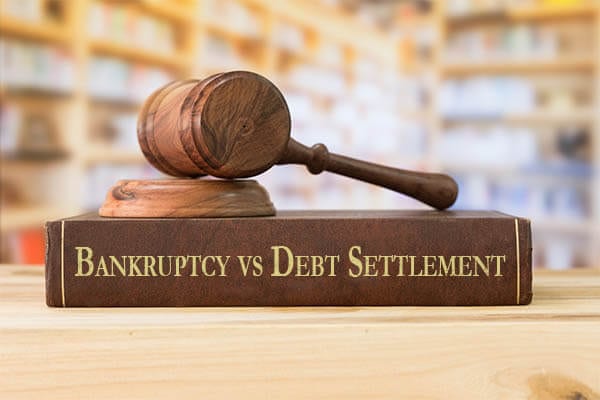If you’re awash in debt that is so out of control that you have no hope of paying it off by yourself, you basically have two options: debt settlement and bankruptcy. But there are distinct differences between the two about which you should be aware. So, should you choose debt settlement or file bankruptcy? Let’s look.
What is Debt Settlement?
Let’s first define terms. Also called debt relief, debt settlement is when you pay a company such as Freedom Debt Relief to see whether the people you owe, such as credit card issuers, would let you make a one-time payment in full of less than what you owe to have your debt marked as “settled” on credit reports. You likely would be successful since your creditors know that should you go with your other option – bankruptcy – they likely will get stiffed.
How Does it Work?
During a consultation, in which you and your company will go over your finances, you’ll get a customized debt repayment plan. After that, you’ll make monthly deposits into a savings-like account that you control. Once your cash stash in sufficient, your company will negotiate with your creditors, using the account as leverage. Once each debt is settled, and approved by you, the creditor is paid from your savings.
Won’t That Hurt My Credit?
The process of debt relief will depress your scores – temporarily. When your settlements are done, and you start rebuilding your credit – your scores will increase.
Note that your scores aren’t the best now anyway, and that debt settlement is better on your credit than bankruptcy. More on that shortly.
What Kind of Debt Can I Enroll in Debt Settlement?
With debt relief, it depends on the company. However, several kinds of unsecured obligations are typically accepted. Those include credit cards, medical bills, and personal bank loans.
What is Bankruptcy?
For individuals, bankruptcy is basically a legal process that aims to help erase all or a portion of a debt to help the person repay some of what they owe. The whole thing is overseen by federal bankruptcy courts.
How Does it Work?
You’ll need to first see someone who knows the ins and outs of bankruptcy: a bankruptcy lawyer (which will cost you, of course. For debt settlement, you’ll be charged a fee of around 15% to 25%, but only after a debt is settled).
Before you’re allowed to file, you will need to show that you cannot pay your obligations, and you must undergo credit counselingto make sure filing is the right move for you. If it is, you’ll need to choose between Chapter 7 or Chapter 13.
Chapter 7: Here, a federal court trustee will oversee the sale of non-exempt assets (exemptions may include work tools or basic household furnishings), with the proceeds going to your creditors. Once the bankruptcy is discharged, the balance of your debt is erased.
Note that bankruptcy will not get you out of taxes, student loans or alimony.
Chapter13: With his process, you can retain your property if you repay your debt in part or completely, depending on what the court says in the three- to five-year repayment plan it will issue. Once you’ve finished that your debt will be discharged.
Credit and Other Issues
In addition to the likely loss of property with Chapter 7, this is the big rub with bankruptcy: the filing will be on your credit report for a decade. With Chapter 13, it’s seven years. That could affect your ability to borrow money, get an apartment, or even get a job, for quite a while. However, the process of bankruptcy is faster than debt settlement, which takes between 24 and 48 months.
By now, you should have a better idea of whether to choose debt settlement or bankruptcy. Size up your situation against these options and opt for the choice that’s best for you.

“Incurable internet trailblazer. Troublemaker. Explorer. Professional pop culture nerd.”







More Stories
Salary bonus, check the amount carefully in May: these days the wage doubles
Super Bonus, Giancarlo Giorgetti: Appropriations of $160.5 billion, 7.4% deficit does not affect the deficit
TFR or TFS paid late: ask INPS for interest